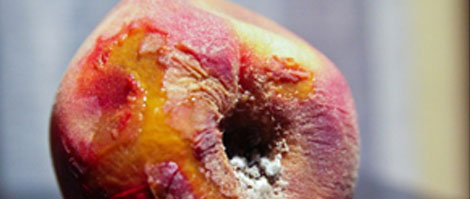
RESEARCH GROUP
Postharvest Physiology, Pathology and Biotechnology
The group covers a broad area of expertise in postharvest topics for citrus and other fruits. They have expertise in physiological alterations of fruits and ways to prevent them, quality of fruits and strategies to increase their nutritional value and fruit pathology, mainly related to fungi infection, in terms of fruit-pathogen interaction and strategies to fight it.
Field of Expertise
The main objective of the group is to improve the quality of fruits and extend their preservation time postharvest. This goal is approached by a multidisciplinary strategy that covers the understanding of the physiological and molecular mechanisms of fruits related to quality, their interaction with pathogens and the study of the pathogens themselves. The goals are to develop preservation methodologies to avoid or diminish postharvest losses caused by physiological and pathological alterations of fruits.
In this context the group has studied cold-associated damages, deshydration and induced tolerance. Related to quality they have explored metabolic routes that can improve nutritional or organoleptic profile such as those of carotenoids, volatile compounds or vitamins. Pathogens such as Penicilium have been studied intensively so their interaction with the fruit can be understood to develop novel strategies to control the infection such as antimicrobial peptides.food ingredients.
Main Aplications and Services
- Improve the quality of fruits and extend their preservation time postharvest by a multidisciplinary approach using strategies based on biotechnology and functional genomics.
- Physical treatments to reduce cold-associated damage of fruits.
- Biotechnological strategies to improve nutritional profile and other quality characteristics in Citrus.
- Biotechnological modification of fruits to improve fruit response to pathogens.
- Identify novel antifungal targets and asses efficacy in vivo.
- New antifungal tools to control Penicillium in citrus and apples.
- Identification, characterisation and development of novel proteins and peptides to use in postharvest preservation of fruits.
UNIDAD DE TRANSFERENCIA DEL CONOCIMIENTO
Institute of Agrochemistry & Food Technology · IATA
t. + 34 963 900 022 ext. 3107
email: utc@iata.csic.es

